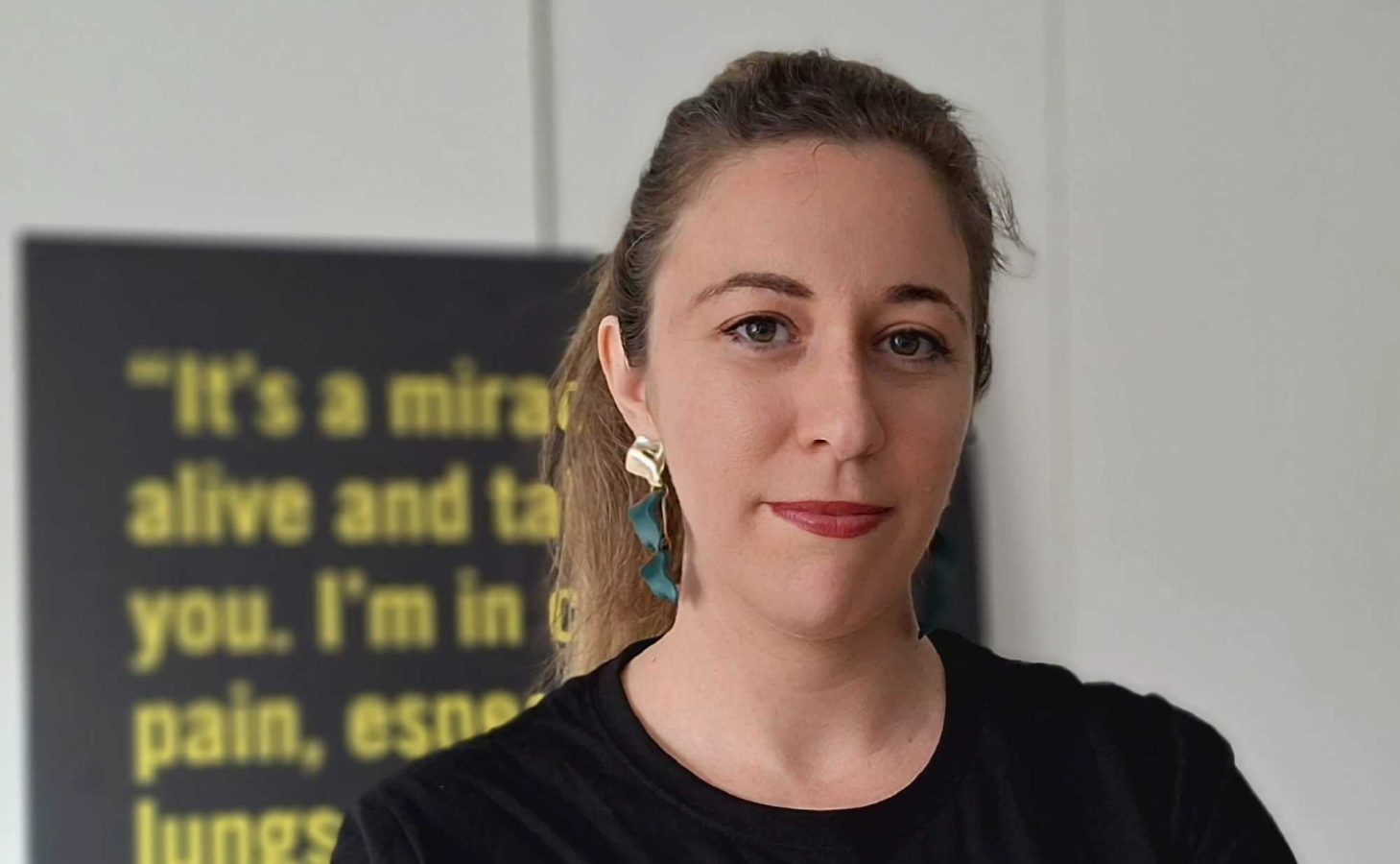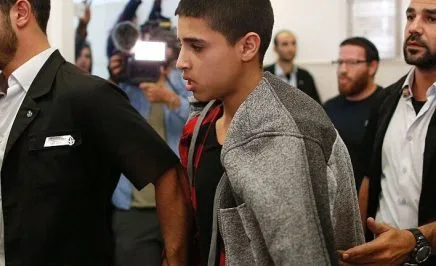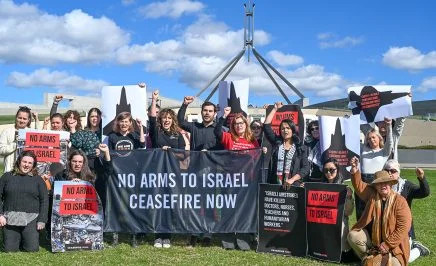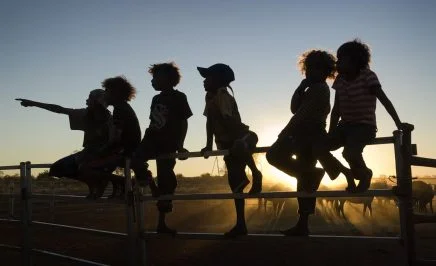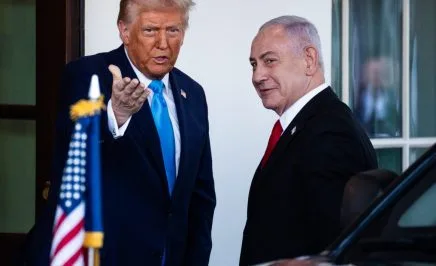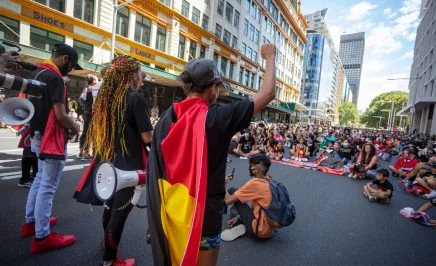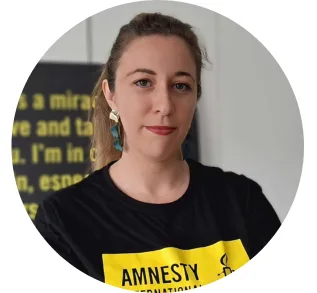
By Kathryn Allan
Amnesty International Australia
International and Crisis Strategic Campaigner
Women are the resistance.
Where women are oppressed, and their voices silenced, they are resisting. But not all women experience oppression equally. Indigenous women, migrant, refugee and asylum seeker women, queer women, women of colour, trans women and women with disabilities are on the frontlines, often fighting battles that go unseen. Women are not passive victims, they are active in leading movements, protecting their communities and holding the world together. Where patriarchy strikes with violence and exclusion, women are ready to resist, through collective power and methods grounded in care.
I will never forget the first time I met my friend, Souzan, a woman from Sudan who was organising a rally in Canberra in support of the revolution happening back home. We bonded through our fierce belief in global feminist justice, standing side by side at rallies together – for the Occupied Palestinian Territory, Iran, Tigray, Myanmar, the Women’s March for Justice in Canberra, for the rights of Tibetans, every single Invasion Day protest and always, for Sudan. Our truth stood out in our conversations: women may not be the face of protest movements, they’re rarely in the headlines and, only 5% of war stories focus on women’s experiences, and just 0.04% highlight women as peace leaders.
Yet, women bear the heaviest burden—and they’re the ones keeping everyone alive. Women die trying to save lives. But women’s lives are not a currency. The latest research conducted in 2023, showed that number of women killed in armed conflicts doubled. Over 170 conflicts raged, putting 612 million women and girls in danger—50% more than a decade ago. The state of the world reflects an extremely grim reality for women, especially in conflict zones. Despite the lessons of history, sexual violence remains a brutal weapon of war. In Sudan, the crisis has escalated at an alarming rate. Within two years the number of people at risk of gender-based violence (GBV) has more than tripled to an estimated 12.1 million people, or 25 per cent of the population. According to UN Women, the number of GBV survivors seeking services surged by 288% in the year to December 2024.
Despite this, a cohort of young, predominantly women revolutionaries, are rising up. These women, who have long been at the forefront of the pro-democracy movement, are now leading grassroots networks of support in Khartoum and other conflict-affected areas of Sudan.
My friend Souzan said, “When the fighting came to the streets of their neighbourhoods this resistance provided systems of support, providing residents with information on safe access routes, locations of safe water supplies, medical supplies, and even sanitary products for women. This is the face of revolution, and of hope, this is communities supporting each other for survival. So often these are the stories ignored by the media, who instead give platform to the fighters.”
And whilst the media ignore the stories of women freedom fighters, the onus is on feminist activists around the world to support and be strong allies of these women. They are doing the work.
Let me remind you: Women revolutionaries exist and persist all over the world. The women of Iran and Afghanistan are leading the fight against the most oppressive regimes. They are calling on the world to recognise gender apartheid as a crime against humanity under international law. Together they are united in their fight for freedom to combat institutionalised and systematic domination and oppression on the basis of gender.
I will never forget organising marches for the Women, Life, Freedom movement– a truly feminist uprising, where an essential protest tool for Iranian feminists was the music – because in this revolution, dancing is an act of defiance, a freedom denied in Iran. What stood out most to me, was the amount of people from the LGBTQIA+ community, and men who joined the dancing, and joined the revolution, many declaring themselves as feminists. When we stand together, we are stronger.
As women revolutionaries rise up, they are subjected to the most vile forms of abuse, Amnesty International detailed the harrowing use of rape, including gang rape, and other forms of sexual violence by Iranian authorities as they sought to crush protests and terrorize and punish protesters, including children as young as 12. Women’s bodies are not a war zone. Narges Mohammadi, a prisoner of conscience, said “violence and sexual harassment of women by a government that, under the guise of religion, has taken away ‘femininity’ from us as a means to advance its illegitimate power and ambitions[…] Women will not give up. We are fuelled by a will to survive, whether we are inside prison or outside”.
Iranian feminists consistently fight back, and stand up for their rights, in 2023, they published the Iran Women’s Bill of Rights which clearly outlined women’s demands for absolute gender equality and justice. Whether it is dancing, writing, creating art, or protesting in the street, Parastou Forouhar says, “every act of resistance is a spark of hope”.
Much like Iranian feminists, the women of Afghanistan are sparking their own hope, every single day. Resistance is not only found in the protests in the streets; it also happens in the silence, underground. Every day, women are risking their lives, turning the wheel of underground defiance.
Exiled women from Afghanistan are using their voices in every private and public space to stand up for the rights of women and girls in their country. My dear friend, and former Member of Parliament in Afghanistan, Dr Nilofar Ebrahami says, “Women in Afghanistan are forbidden from speaking in public. If a man hears their voice, it is considered a sin. They are not even allowed to leave their homes. The world is facing wars and crises, but no war should silence women. Why should the rights of Afghan women be held hostage by global politics?”
“Afghan women are not part of any war or political game, yet they are suffering the most. We ask Australia and the world to see this as a human crisis, not a political issue. Supporting Afghan women’s right to education and social participation means standing for human rights and justice.”
The stories of these women freedom fighters inspire me every day and remind me of one powerful truth: no matter where we look, women’s rights are being oppressed. Yet, everywhere we look, women are the resistance.
Amnesty International is a global movement of more than 10 million people who take injustice personally. We are campaigning for a world where human rights are enjoyed by all – and we can only do it with your support.
Act now or learn more about our work to protect Individuals at Risk.
